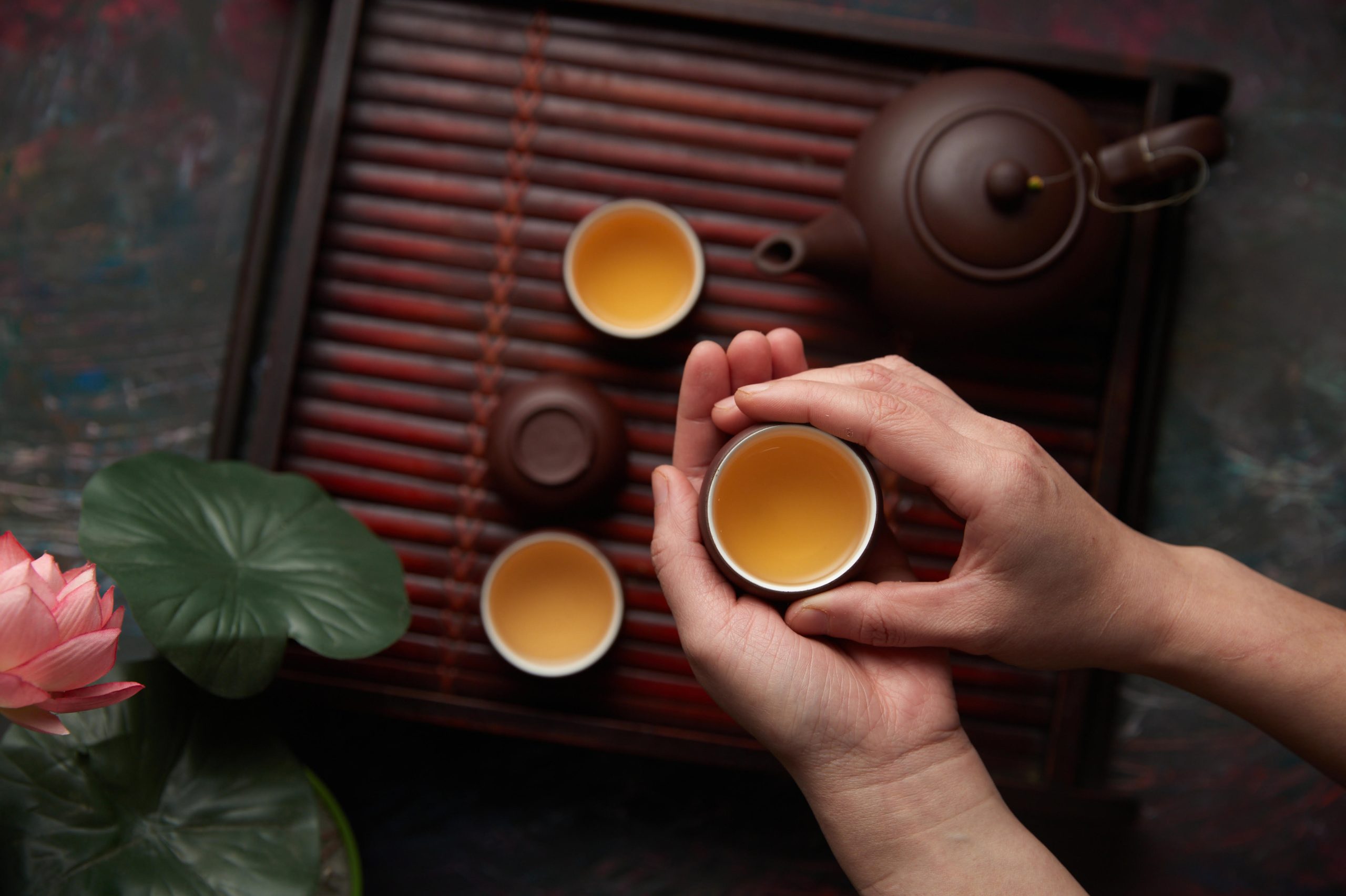Translated By Tara Lau
Since ancient times, tea has been closely connected with Zen. Many Buddhist temples run meditation classes as a routine, and since it is a taboo for meditators to be drowsy, tea with its refreshing quality has naturally become their ideal drink.
When I first became a monk, I used to think that for Zen practitioners to drink tea every day to refresh themselves was rather an undesirable habit, an obsession and perhaps an addiction, until one day I chanced upon The Collected Poems, Gathas and Odes by Xu Yun the Old Monk, when I realized the meaning of the saying, “A Zen master cannot live a day without tea”. This legendary ascetic (1840-1959), one who was steeped in all the five Zen sects, did have an entrenched tea-drinking habit. One of his series of poems about mountain living concerns the joy of making tea,
“An intent for mountain dwelling reaches far afield, open, boundless and free.Take pine roots as makeshift pillows, and when waking up alone, make tea.No visitor comes to a mountain residence, a bamboo trail locking in the haze. Clear is the shallow water facing the gate. A few flowers flutter in the breeze.”
In mountain woods far away from the secular world, to sip a pot of light tea made by oneself right after waking up, and then sit in a padmasana and attain serenity, it is so interestingly full of Zen. Further, Master Xu Yun not only loved to make tea, he also knew how to pick it. Here is what he wrote in a timeless piece, fittingly titled Picking Tea,
“With my busy life in the mountain making a living, I pick pepper and I pick tea leaves.If nothing else being amazing, awesome tea buds sprout overnight in a spring breeze.”
Xu Yun often makes tea to entertain guests and reminisce about the past. There are many such works in his collection of poems. Here are three excerpts for your appreciation:
“The autumn scenery is beautiful at this time, I sit by the tall tower. The door is open so I can gaze at the new moon, and make tea to wash away past sorrows.”
“There are no guests lingering, and there is good company along with soothing music. Their coats are thin and they can feel the cold. Lanterns are passed around while they continue to chat blissfully.
“Sitting in the Cen Tower with Friends on an Autumn Night”
“On the lonely southern Yunnan road, I meet my old friend by destiny. I admire you for becoming an official so early, yet I feel ashamed that it is too late for me to learn Zen.
Cooking tea with new poems, we light up the lamp and talk about the good old times. The moon is shining and the breeze is blowing gently outside the window, when are we going to meet again.”
“Meeting Tang Yousheng in Puli and saying goodbye at night”
“The snow has not completely disappeared and the road is not dry yet. The smiles in the dream give me peace; When the bottle begins to boil and the tea begins to be ready, I don’t realise that there is coldness ever in the world.”
“Reply to Zhan Liwu’s tea talk in his dream and the Perfect Rhythm “
Tea aficionados like to say that the tea ceremony has a virtue of simplicity and unpretentious frugality. The master’s humble mountain life gives such full play to this virtue, with its involvement of Zen from planting, picking and making tea to welcoming guests to musing over yesteryear.
In the history of Chinese poetry, Monk Xuyun is a long-lived poet (1840-1959), who lived to the age of 120. This eminent Buddhist monk traveled to countless famous mountains in China and wrote more than 390 poems and verses. His poetic landscape combines the natural scenery of mountain dwellings with the enlightenment experience of Zen practitioners. It is pure, transcendent and spotless. The poetry community spoke highly of his works. The modern Buddhist poet Zhan Liwu said:
“…Xu’s thoughts are spotlessly pure, but his wish to live his life has expanded to be boundless. Therefore, his poetic realm is unique and integrated, and when it comes to composing sentences and words, he is purely natural, always showing endless infinity. It is difficult for me to find an appropriate proportion of his poetic style among all the other worldly poets in China…”
Dear friends, in your spare time, you may wish to read “The Collected Poems, Gathas and Odes by Xu Yun the Old Monk” quietly. It will transform your thoughts, purify and free your mind , and you will feel like you are in a Zen state! You can also make tea while reading, you will naturally forget about the hustle and bustle in life. Remember, “tea zen is it”!

